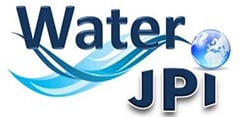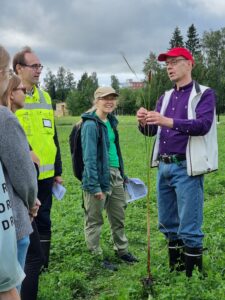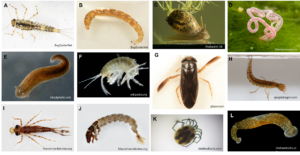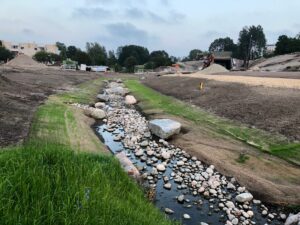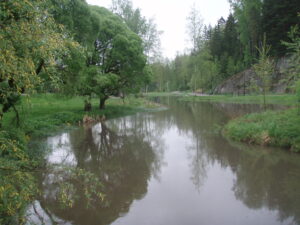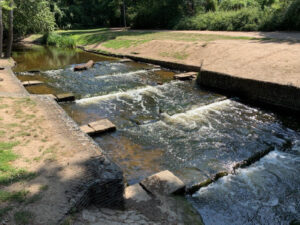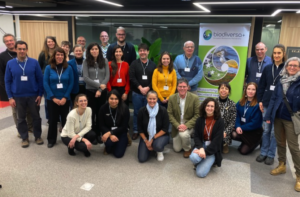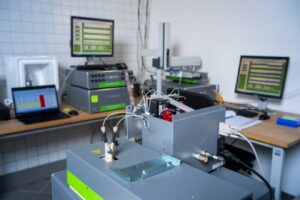Visiting Research Sites with Local Planners in Helsinki Metropolitan Area
By Hanna Nieminen In the end of August, after summer holidays in Finland, we invited local planners from cities of Vantaa and Helsinki to join us for half-a-day field trips to discuss project research results and jointly explore selected study sites of aquatic nature-based solutions (aquaNBS) for stormwater management. In Vantaa, we visited Illenpuro Brook,…
Read MoreHow Do We Sample Aquatic Invertebrates at Sites with Aquatic Nature-based Solutions?
By Vladimíra Dekanová Aquatic invertebrates are involved in many important processes in aquatic ecosystems, since they contribute significantly to nutrient cycling and the turnover of organic material. From this reason, invertebrates represent a useful ‘indicator community’ for assessing the condition of freshwaters. This is because their taxonomy, status, and ecology, including phenology as well…
Read MoreSocial-Ecological-Technological Framework for Studying Urban Aquatic Nature-Based Solutions in Cities
By Kati Vierikko and Pedro Pinho BiNatUr team published a book chapter in 2023 focusing on the use of a holistic framework to encompass the functioning of aquatic nature-based solutions (aquaNbS). The framework is based on the social, technologic, and social dimensions, and propose that there is a need to characterize the interactions of these…
Read MoreWhat kind of aquatic nature-based solutions we study? Selections of research sites
by Kati Vierikko and Pedro Pinho Nature-based solutions (NBS, or NbS) are expected to provide multiple ecosystem services (ES) and support biodiversity (BD) (Franzeskaki et al. 2019, European Union 2021). In many European cities, the implementation of NBS in aquatic ecosystems (“aquaNBS”) through the restoration or construction of new habitats has become an important policy goal.…
Read MoreBiNatUr joins the Biodiversa+ Knowledge hub on “Potential of Nature-based Solutions for mitigation and adapting to climate change”
by Pedro Pinho and Filipa Grilo, University of Lisbon What do we currently know and what are the current gaps on the topic of Nature-based Solutions contribution to climate change adaptation and mitigation? This is the focus of the newly created Biodiversa+ Knowledge hub. On February 9 and 10th, 32 researchers from 21 projects (BiodivClim,…
Read MoreEcohydrological boundary conditions for Ecosystem Services of aquaNBS
By Michael Monaghan and Dörthe Tetzlaff IGB The WP4 team is interested in how the sources and flow pathways of water affect the persistence of urban aquaNBS and the biodiversity they contain. The approach uses two types of tracers, stable water isotopes and eDNA. Both give clues as to the sources and flow pathways of…
Read More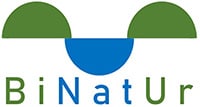
Project funders:
This research was funded through the 2020-2021 Biodiversa and Water JPI joint call for research projects, under the BiodivRestore ERA-NET Cofund (GA N°101003777), with the EU and the funding organisations The Research Foundation - Flanders (FWO), Belgium; Academy of Finland (AKA), VDI/VDE-IT, Germany; National Science Center (NCN), Poland and Fundação para a Ciência e Tecnologia (FCT), Portugal

